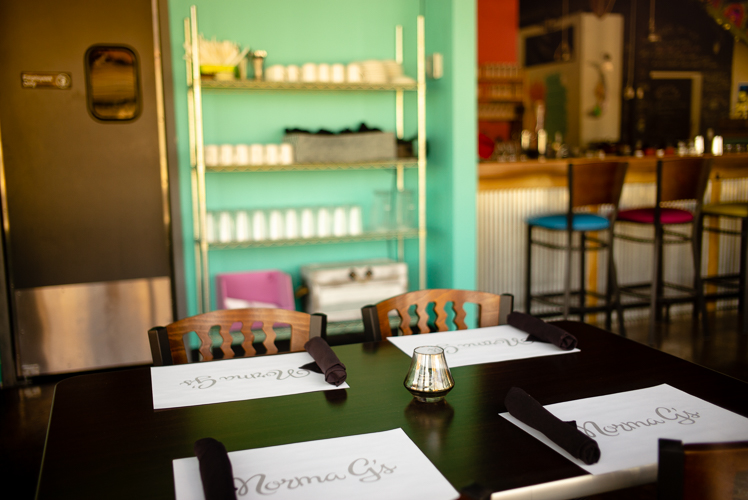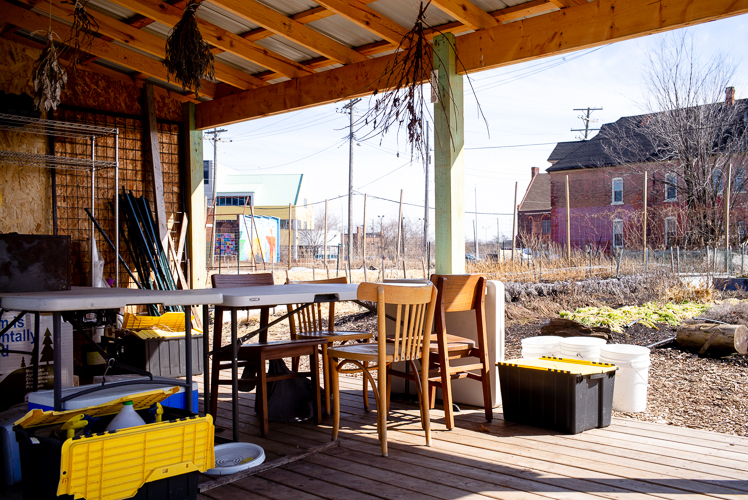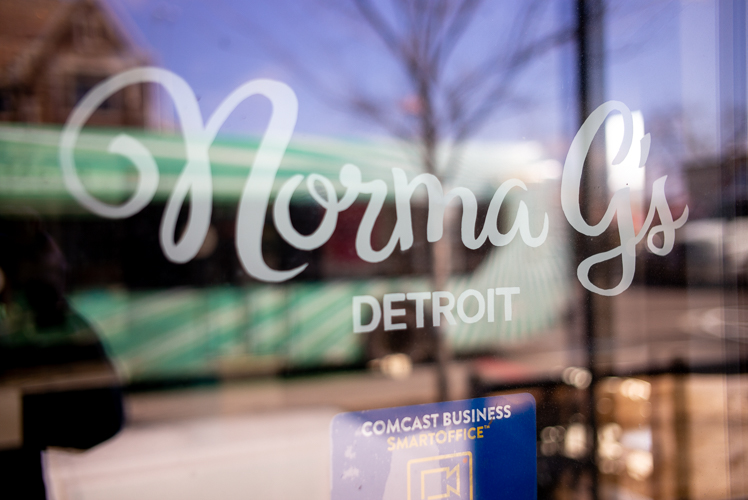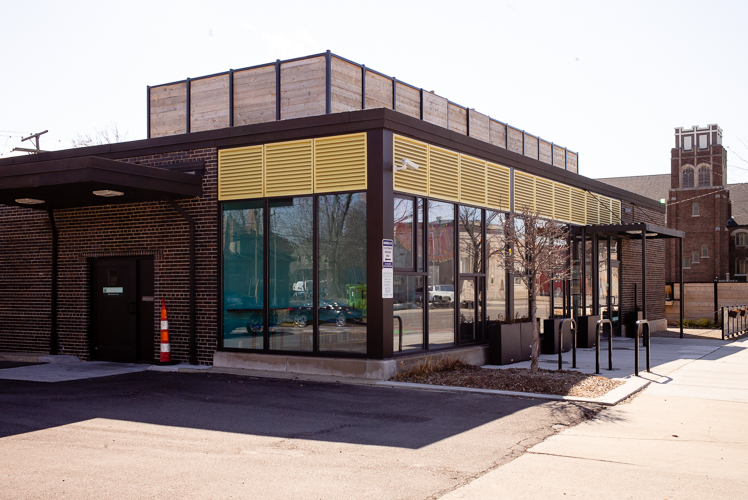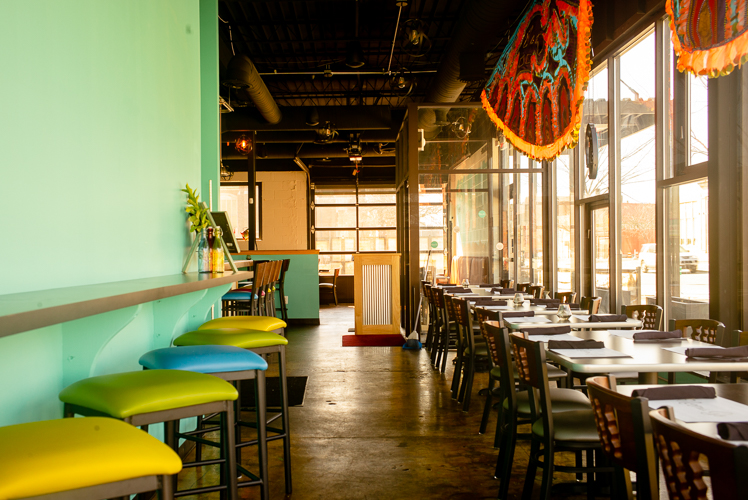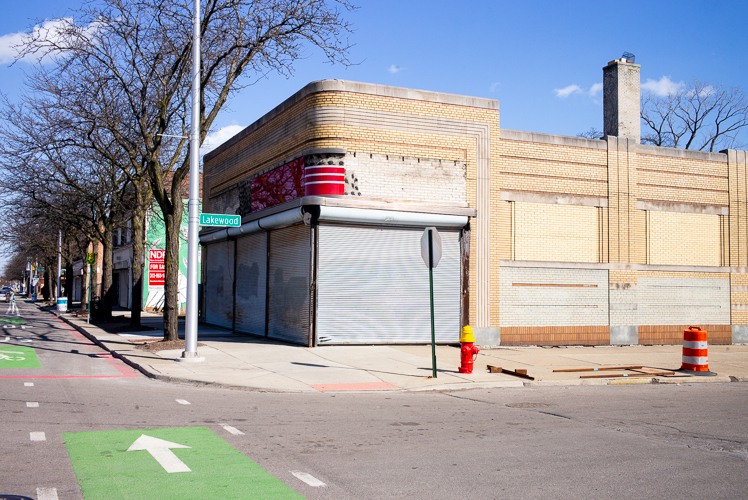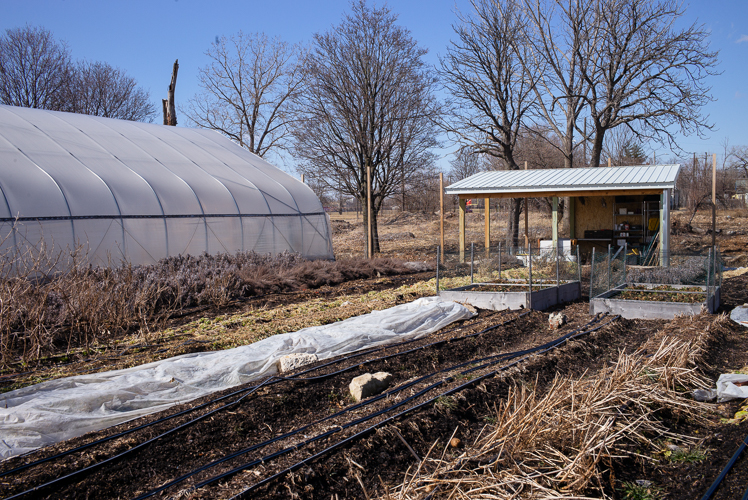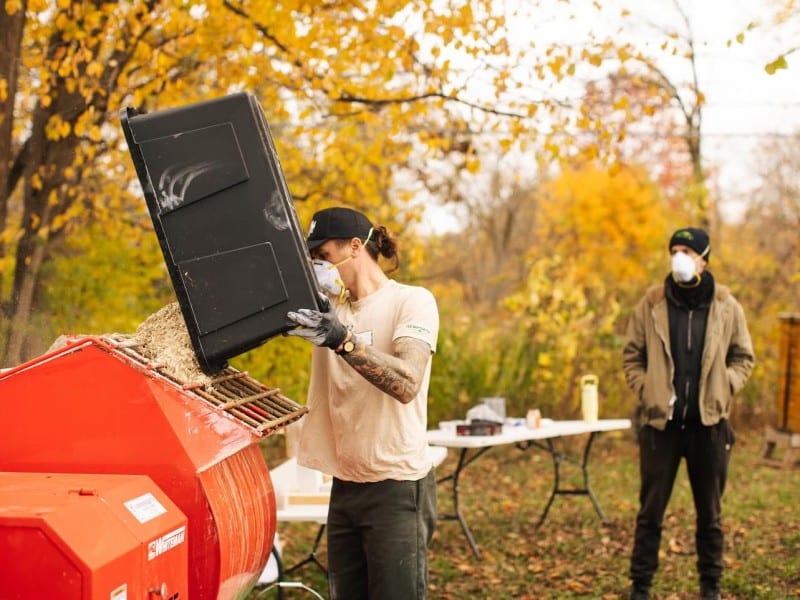These innovative new restaurants are putting Jefferson Chalmers in the spotlight
Food-related businesses can often serve as a catalyst for neighborhood development. Jefferson Chalmers has several new ones opening their doors.
Alison Heeres and Gwen Meyer know a lot about food — and something about navigating Detroit’s waterways too.
For the last several years, they’ve been growing vegetables on an urban farm near Eastern Market. The two entrepreneurs have also been hosting innovative “paddle-to-table” dinners that offer a kayaking experience and a farm-to-table meal on the grounds of the the former Fisherman’s Marina in Jefferson Chalmers. Now they’re preparing to take the next step, turning their business, Coriander Kitchen and Farm, into a full-time, sit-down restaurant that’s set to open later this year. And, along with their partnership with the kayak rental business Detroit River Sports, a big part of their sales-pitch is the neighborhood itself.
“I’m excited about creating a destination that’s going to make Jefferson Chalmers more accessible to people,” Heeres says. “It’s a really interesting and important part of the city that isn’t fully utilized by the residents.”
Although there are several great parks on Jefferson Chalmers’ waterfront, the neighborhood is an area people don’t often visit unless they live or know someone there. Until recently the neighborhood lacked the type of commercial corridor that draws people in and encourages residents to interact with their neighbors. Several new restaurants and nonprofits like Jefferson East Inc. are trying to correct this by using food-related business as a catalyst for community development.

Citing the example of Slows BBQ, Derric Scott, Jefferson East’s Economic Development Director, sees restaurants as a great tool for economic growth.
“People are always looking for a good place to eat and an experience,” he says. “So, if the customer service is good and the quality is good, they’re going to tell more people and introduce them to an area they may not have been exposed to or even knew existed.”
But, while Scott feels it’s important to attract people from outside, he also stresses the importance of serving neighborhood residents. In 2015 Jefferson East conducted a poll through the National Main Street Center to find out what residents wanted in their community. The top three things residents were looking for were nightlife and dining, businesses owned by or oriented towards minorities, and basic services.
Currently, the non-profit is working with two restaurants, Norma G’s and Alma Kitchen to address the first two concerns. And, in regards to staple services, the City of Detroit is kicking off a request for proposal process that will prioritize bringing a grocery to a site being developed near Piper Boulevard and Jefferson Avenue.
Norma G’s, owned by Lester Gouvia, was the first restaurant to partner with Jefferson East after the completion of their survey. The Caribbean eatery, which opened last August, checks several boxes on their plan for the neighborhood; in addition to being minority-owned, the restaurant also has a bar, meaning it provides patrons a place to both eat and hang out. It also employs people from the community, offering pays rates that are above average for the industry. Jefferson East requires restaurants it collaborates with to hire at least 50 percent of their employees from the local neighborhood or four surrounding zip codes, as part of its “inclusive development principles.” By those metrics, Norma G’s goes above and beyond what the nonprofit is asking, as 13 of its 15 employees walk to work.
A few blocks away from Norma G’s, Alma Kitchen is looking to open its doors this September in the historic Kresge Building on Jefferson Avenue at Lakewood Street. The fusion restaurant, owned and operated by catering veterans Gary Mui and Alicia Sanchez, will offer a mix of Chinese-American and Mexican-American culinary traditions.
As with the other restaurateurs mentioned here, Mui emphasizes how welcoming neighborhood residents have been to him, even during his earliest visits to the area. In turn, he hopes to give back to the community by creating new jobs and offering affordable food to local residents. And by affordable, Mui means high-quality meals that are friendly to people’s pocketbooks, a sentiment echoed by Coriander Kitchen and Farm and Norma G’s.
As for the menu, the restaurant combines influences from Mui’s Chinese-American Sanchez’s Mexican-American upbringings.
“Alma Kitchen will incorporate what we grew up with, Chinese and Mexican cooking and incorporate some American cooking too,” says Mui. “It’s a representation of growing up in the Metro Detroit area.”
Their innovative approach to cuisine is shared by Norma G’s owner Gouvia. A native of Trinidad, he offers a “multicultural” menu with a personal touch. “I’m going to cook a little bit my way’,” he says.
Coriander Kitchen and Farm’s owners also plan on doing things their own way, with a business model that combines home-grown Detroit produce with an optional kayaking trip. From their marina location on Riverside Boulevard, they’ll be offering farm-stand and to-go meals like deviled farm eggs, Moroccan lamb shank, and summer squash carpaccio with anchovy to kayak enthusiasts and other hungry patrons. They’ll also sport a full bar.
As with the other two restaurants, Meyer and Heeres are committed to hiring heavily from the neighborhood. They’ll also be serving breakfast, lunch, and, dinner, hoping to fill a niche for a breakfast-and-coffee spot that Jefferson Chalmers currently lacks.
Coriander, Norma G’s and Alma Kitchen all bring their own unique sensibilities to food and dining. But this difference in approaches could be the key to bringing in outsiders and serving the diverse set of people who already live in the neighborhood.
With its historic architecture and unique park-and-canal access to the Detroit river, Jefferson Chalmers is already unlike any other neighborhood in Detroit. And Scott feels these innovative new restaurants have the potential to turn the neighborhood into a city or regional draw.
“It’s hard to find places like that anywhere else,” he says. “We see that as the catalyst for the neighborhood. People will start to know what Jefferson Chalmers is!”
Except where indicated, photos by Stephen Koss.
This article is part of our “On the Ground” series, where a journalist reports from a dedicated neighborhood for weekly coverage. Support for this series is provided by the Kresge Foundation.
